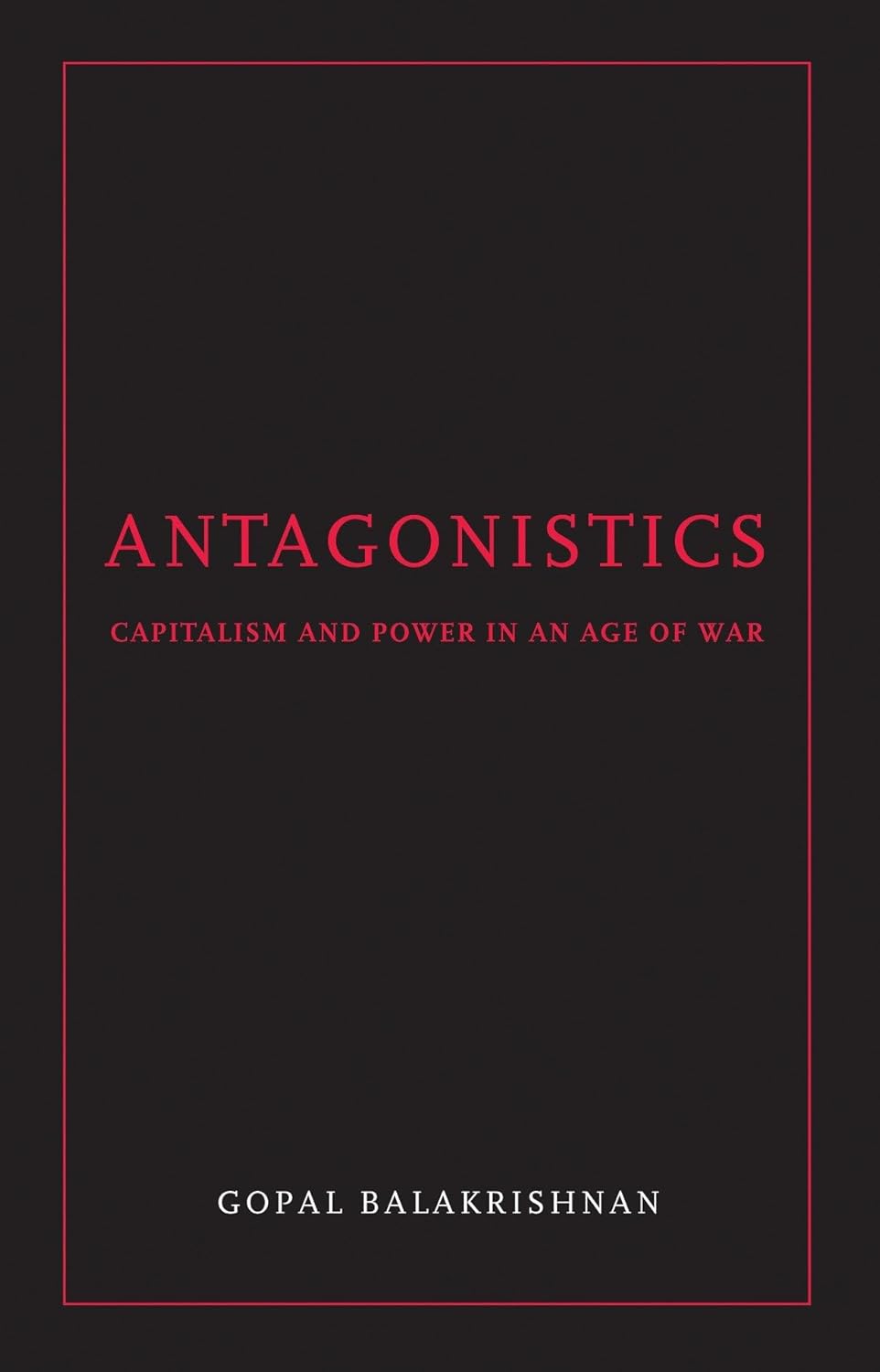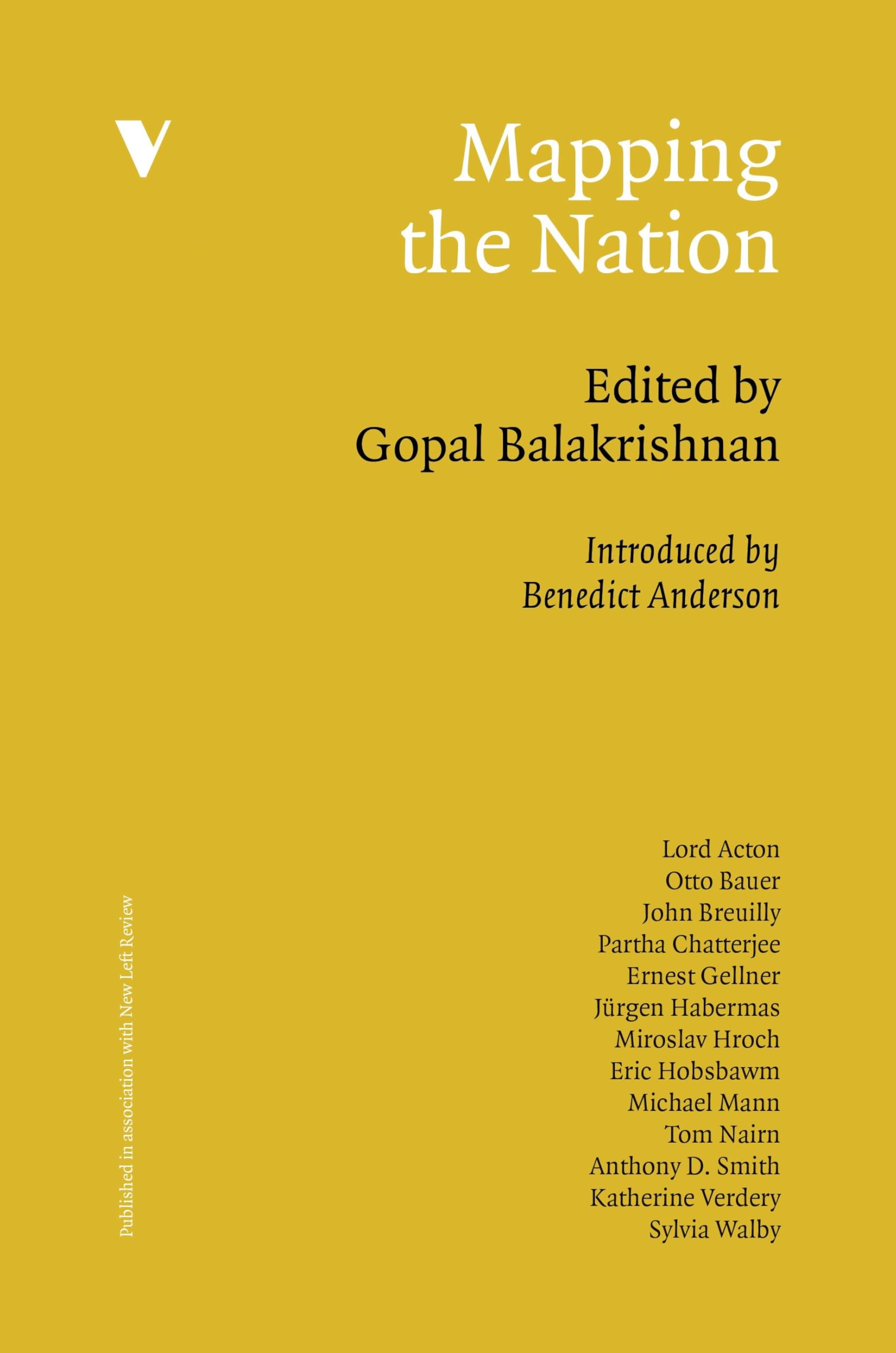Authored Books

Antagonistics: Capitalism and Power in an Age of War
by Gopal BalakrishnanAntagonistics examines the relationship between neo-imperial warfare, neoliberalism, and American hegemony in capitalist globalization. It traces the evolution of the modern state and capitalism, from the Treaty of Westphalia to the Occupation of Iraq. Gopal Balakrishnan analyzes perspectives from Tocqueville, Althusser, and Schmitt on state power, civil society, democracy, and class, blending intellectual history, political philosophy, and sociology to portray an era of capital and war.
Read more
The Enemy: An Intellectual Portrait of Carl Schmitt
by Gopal BalakrishnanCarl Schmitt’s writings form a unique and unsettling body of twentieth-century political thought. Often linked to Nazism, his largely untranslated works are fragmented and obscure. The Enemy offers a comprehensive analysis of Schmitt’s major writings from 1919 to 1950, revealing his philosophical argument for the necessity of confrontational politics within democracy, a perspective that challenges today’s dominant consensual politics.
Read moreEdited Books

Mapping the Nation
Edited by Gopal BalakrishnanSince Samuel P. Huntington’s “clash of civilizations” thesis, nationalism has continued to perplex scholars and analysts, with no consensus on its nature, origins, or future. Are we reverting to nineteenth-century nationalism or moving toward a globalized world? Has the nation-state outlived its role? Mapping the Nation presents a wide range of perspectives, including Ernest Gellner vs. Miroslav Hroch, Gopal Balakrishnan’s critique of Benedict Anderson, and Partha Chatterjee’s analysis of nationhood, alongside contributions from Michael Mann, Eric Hobsbawm, Tom Nairn, and Jürgen Habermas.
Read more
Debating Empire
by Gopal BalakrishnanMichael Hardt and Antonio Negri’s Empire has been hailed as a modern Communist Manifesto, offering a theoretical framework for understanding global neoliberalism and international capitalism, which resonated with the anti-capitalist movement. However, it has also sparked anger and frustration. In this collection, prominent international theorists critically analyze the book from political, economic, and philosophical perspectives, while Hardt and Negri respond to their critiques.
Read moreEssays
From 1995 to 2017, Balakrishnan wrote a series of essays for the New Left
Review from 1995 to 2017 on the history of political thought, the
long-term prospects of liberal-democracy, the origins of identity
politics, the changing nature of war, and the development of Marx’s
economic thought. The first was a review of Benedict Anderson’s work on
modern nationalism, entitled “The National Imagination,” arguing that the
mobilizing power of the nation was being put into question by longer-term
cultural, political and military trends. In “Two on the Marble Cliffs,”
Balakrishnan examined the highlights of an 800-page correspondence in
German between Carl Schmitt and Ernst Jünger, the two leading thinkers of
the twentieth century German Right. In “From Florence to Moscow,” he
analyzed the French philosopher Louis Althusser’s various reflections on
Machiavelli as the original theorist of the revolutionary foundation of
new states. The ambitious and influential theorization of a new
de-centered, post-national capitalist empire by Hardt and Negri was the
subject of a critical review, “Virgilian Visions,” which argued that the
defining characteristic of the contemporary international system was, in
fact, the financial and military primacy of the American state.
In his review of Bhikhu Parekh’s philosophical defense of
multi-culturalism, “The Politics of Piety,” Balakrishnan offered a
scathing indictment of the politically neutralizing effects of this new
discourse of inclusion. Sheldon Wolin’s celebrated study of Alexis de
Tocqueville as a theorist of the rise of democracy and the decline of the
European Old Regime is appraised in “The Oracle of Post-Democracy,” where
the great French liberal is situated in a lineage of counterrevolutionary
thinkers. In another essay on the perils of identity politics, “The Age of
Identity,” Balakrishnan contends with Lutz Niethammer’s account of the
European origins of this ever more influential ideology of collective
being. “The Algorithms of War” takes on Phillip Bobbit’s conception of the
last five centuries of Western geopolitics as a succession of inter-state
treaty regimes all the way up to the ‘rules-based international order’
imposed by the U.S. and its allies after their victory in the Cold War. In
“The Age of Warring States,” Balakrishnan disputes a Marxist historian’s
contention that international relations became more peaceful with the
onset of modern capitalism. In “The Geopolitics of Separation,”
Balakrishnan demonstrates the significance of Carl Schmitt’s conception of
war and the state and proposes an interpretation of the latter that
underscores its congruence with a Marxist problematic hinging on the
separation of the political from the economic.
In “Future Unknown: Machiavelli for the 21st Century,” Balakrishnan
revisits the legacy of the Florentine thinker, scanning interpretations of
his thought from across the political spectrum and offered a bold and
disturbing take on his contemporary significance. In “States of War,” the
world theaters of media staged military conflict with asymmetrical enemies
are brought into focus in an arresting account of the dialectics driving
U.S. ‘forever wars.’ In another tour-de-force on the history of war and
strategy, Balakrishnan takes issue with Azar Gat’s account of the rise and
fall of the Clausewitzian cult of the offensive.
In his overview of the work of the literary and cultural critic Frederic
Jameson, “The Coming Contradiction,” he explores with the latter’s
voluminous reflections on the forms of historical time, reframing the
periodization of the present as postmodernity. “Speculations on the
Stationary State” advances what would become an influential conception of
the onset of an era of the permanent stagnation of the capitalist system.
This account on the predicament of capitalism led to research on the
economics of Karl Marx, divided into an early and late period whose
distinguishing characteristics are reconstructed systematically, revealing
previously undetected unities of his thought. This original reconstruction
of Marx’s economic thought is laid out in a two-part essay entitled “The
Abolitionist.”
After the fateful election of 2016, Balakrishnan situated the rise of the
contemporary radical right in a lineage of twentieth century reactionary
and counter-revolutionary thought, arguing in “Counterstrike West” that
its contemporary successor was a weak reminiscence of the original.
Balakrishnan went on to write two pieces for Sublation Magazine. The first
disputed an anarchist conception of the catastrophic impact of automation
in employment. In the second, he examined Vivek Chibber’s account of the
mechanisms of class conflict in modern capitalist democracies and argued
that it failed to identify the ideological conditions of a consequential
workers’ movement.